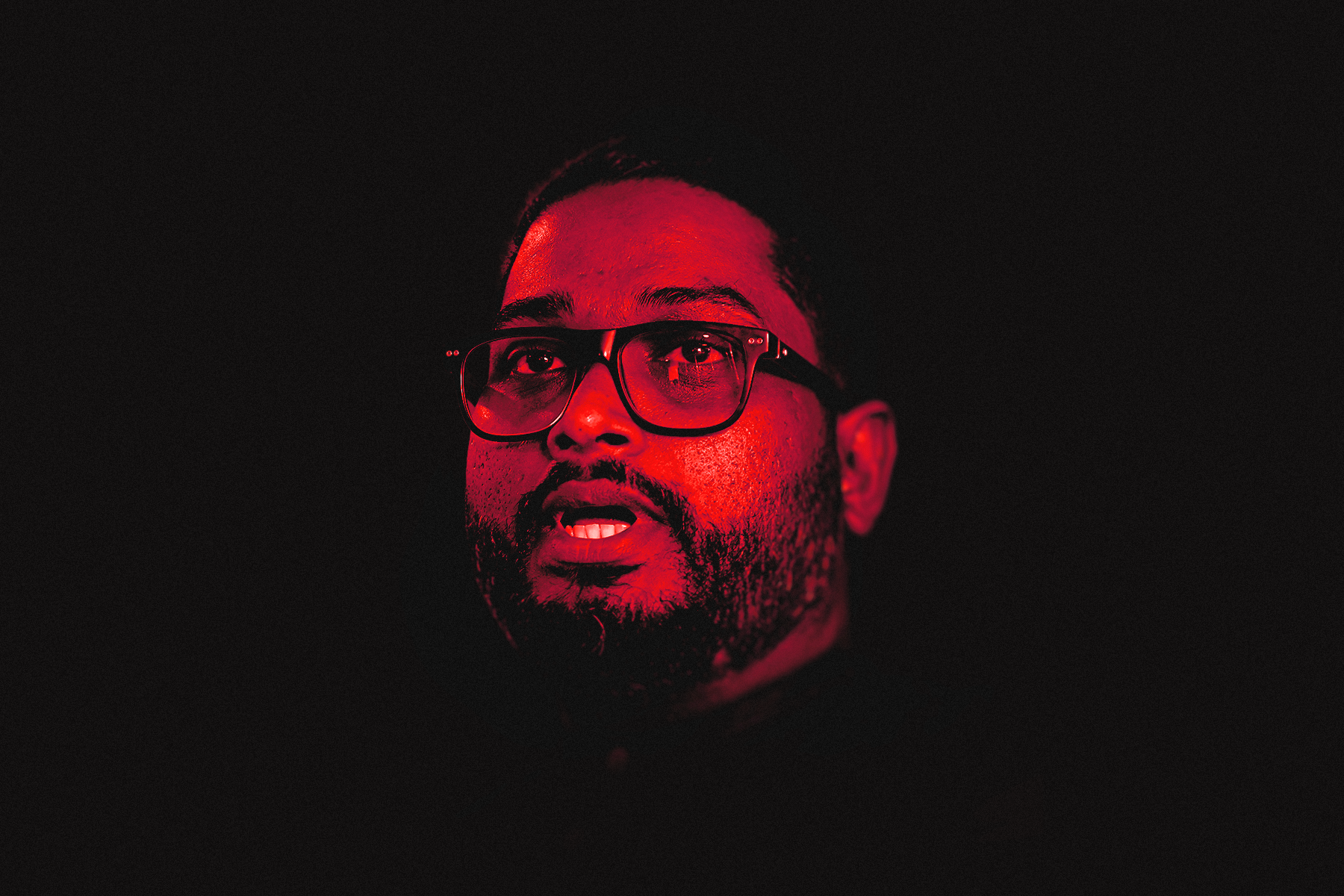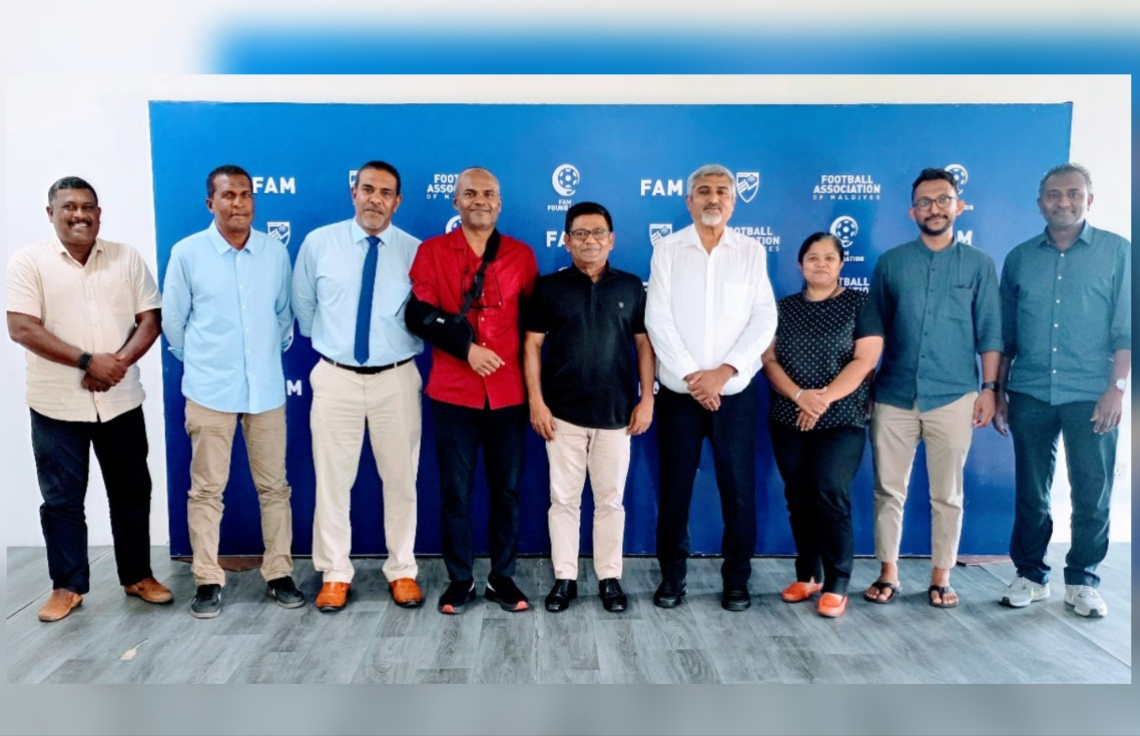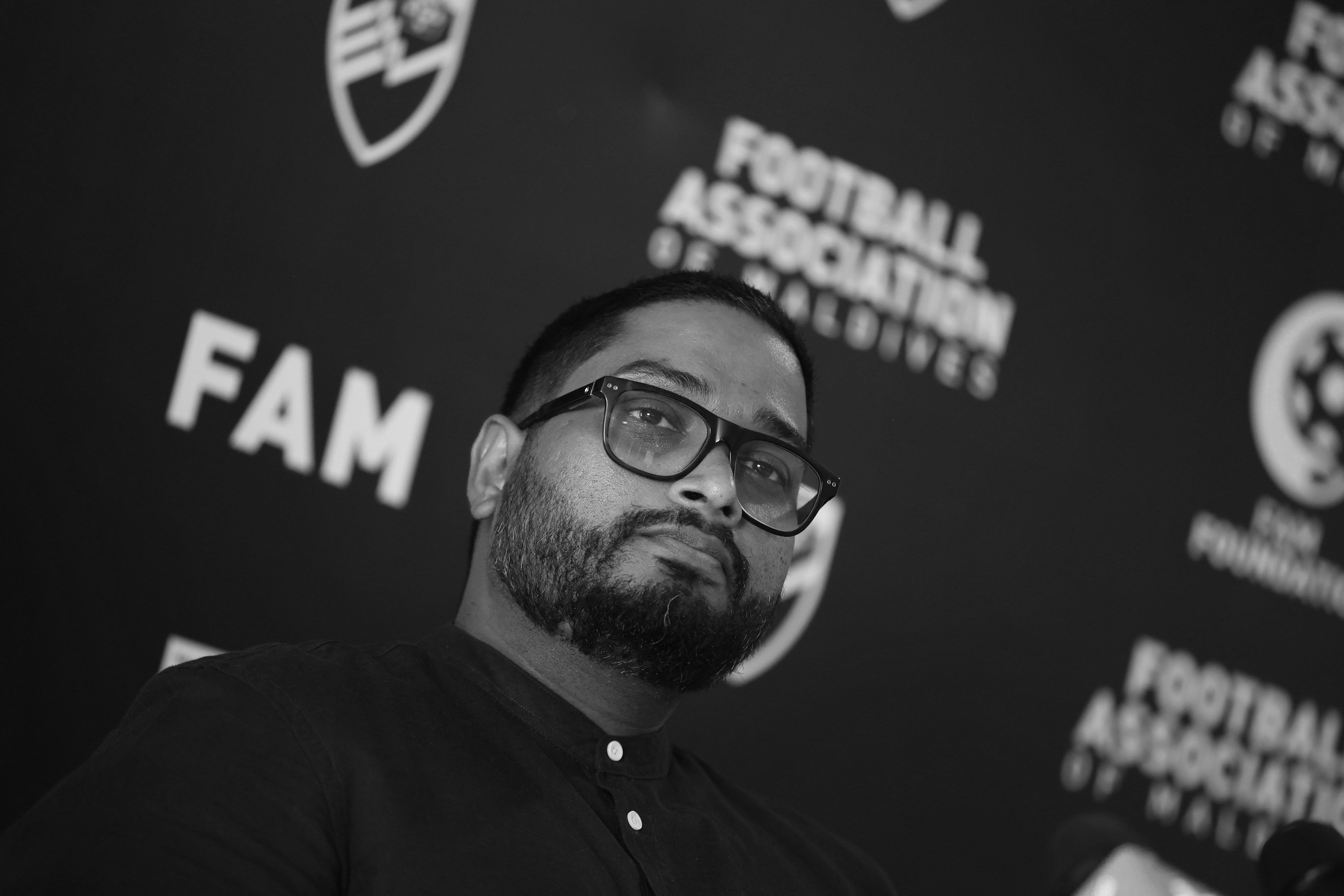From the scandals surrounding Bassam Adeel Jaleel and his EXCO, to the normalization of FAM and what followed, one of the most outspoken critics – the ‘Save FAM’ lobby – has played its role in bringing to light the extent of administrative and legal corrosion within the association.
Among the Save FAM lobby, made up of veteran footballers, coaches, sports administrators, and sports journalists, some of the most powerful criticisms have come from a senior coach and former national team defender, Mohamed Sobah.
From winning the SAFF Championship to captaining first division clubs throughout his career as a footballer, combined with years of experience as a head coach, Sobah has lived through the highest of highs and the lowest of lows in Maldivian football. This makes his voice uniquely powerful.
Sobah does not hold back when it comes to calling out the association’s wrongdoings. What he deems wrong, he articulates well.
Football’s Crash, and Those Who Let it Happen
On June 12th, Sobah wrote, “What Bassam wanted was to implicate others in his theft. Sadly, some others had sacrificed their respect for football and fallen into the trap”.
But Sobah has also repeatedly stated that it is a mistake to put all the blame on one individual; as morally bankrupt as Bassam was, he wasn’t alone in this.
“Most of the people were aware when everything was going off the rails, they just weren’t paying much attention.”
He followed this up with reminding how people were once silenced for speaking out against Bassam “Anyone who dared to say anything was targeted. Blacklisted.” Those inside FAM who remained silent are, in Sobah’s view, complicit. And soon enough, “football had crashed onto the ground.”
Sobah drew parallels between what happened to Maldivian football to the Einstein quote “The world will not be destroyed by those who do evil, but those who watch them without doing anything”.
He wrote on a later date that “The truth is, Bassam and the entire exco must take responsibility for destroying Maldivian football, along with those who benefited while all this was happening.”
Soba had written that “Those who were involved in corrupt or destructive practices during Bassam’s presidency must step aside. Their actions have caused significant damage, damage that will not be easy to recover from. For the sake of Maldivian football, we need honest, committed leadership that puts the game and its future above personal interest.”
A Wake-Up Call
Following the national team’s latest game – the defeat against Timor-Leste, who are 33 ranks below Maldives – Sobah said “The recent result (vs Timor-Leste) is the worst we’ve ever seen, and it should serve as a wake-up call for everyone involved.”
“It’s time for everyone involved in Maldivian football to come together. We must unite to find real solutions to bring back and save football in the Maldives. It’s our responsibility to protect and rebuild the sport for the next generation.”
On June 23rd, Sobah reflected on the normalization process, admitting that “It’s a very difficult situation for any committee to solve right now.”
“But the funny part is that the Normalization Committee doesn’t even want to listen to those with experience, both on the field and administratively. If they were willing to hear us out, it could be the best way to address the current problems.”
On the Need for a Safe Environment
Sobah shared his concerns about how footballers and officials have lost trust in the safeguarding mechanisms in the sport, especially the disciplinary process.
Sharing a footage of pitch invasion and physical assault of players from a game, Sobah said “This needs to be investigated. It happened in broad daylight, in front of everybody.” He added “Where are all the oversight bodies? Where is the sports commissioner? Where is the FA Disciplinary Committee?”
After what he experienced that day in the quarterfinal match of the second division, Soba had spoken out at the time, saying “I’ve witnessed such intense rivalries in club football matches where the entire field was packed. However, never before has it escalated to such an extent.”
Regardless, by the end of the league, Sobah managed to give Victory SC the long awaited return to Dhivehi Premier League.
He added that the lack of safety from violence inside the stadium shows that “there’s still no safety in sports. With such an environment, we can’t go to the stadium with the family and just enjoy watching the games.”
Future of FAM, and the Road Ahead
On June 15th Sobah wrote “I hope the Football Association takes this situation seriously, conducts a thorough analysis of the current state of our football, and makes the right decisions for the upcoming fixtures.” He added that “It’s also crucial that they develop a long-term strategic plan not only for the future generation but also to address the immediate challenges facing Maldivian football.”
“As for the next person who comes in (as the FAM president), my hope is that the most urgent issues at hand are going to be dealt with, and that football will be reactivated.” He added that “I also hope that the next exco will create a plan to represent the Maldives as a whole. I also hope a robust youth development program will be created.”
Members of ‘Save FAM’ have raised some serious concerns regarding the Congress held on 27th June, questioning the exclusion of atolls, the ‘nine zones’ from membership. Many have also criticized how Bassam’s administration had ostracized island-based teams who made it to the DPL via zone-qualifications.
While Sobah acknowledges this, he adopts a more pragmatic approach: “Right now, football is on the ground, wilted and dying away. What (Save FAM) needs to focus on right now is advocating to bring football back to life. Instead of talking about Mahibadhoo or (ostracisation of) Maalhos and Nilandhoo, what is more important is bringing football back to life.”
He reiterated that “Maldivian football has never stooped this low. And never had it been ground to a halt for this long. Footballers and coaches have been stripped of their livelihood.”
Life After Football, and the Struggle of Veterans
In late May, former national goalkeeper Imran Mohamed had shared an introspective message about the lack of a support structure for national athletes after they retire, stating, “I asked myself, ‘what if I had gotten a ‘real’ job instead?’ Then, at least there would be (the security of) a pension.”
Adding to this, Sobah also shared similar concerns, about how the government does not recognize football as legitimate employment when it comes to financial security.
“As former national players, even applying for a bank loan becomes a struggle. The work we do in football, after retiring as professionals who once represented our country, isn’t even recognized as real employment. We gave everything, but the system still refuses to see us”, wrote Sobah. “And to this day, not a single government has found a real solution to this.”
These are deeply personal concerns, not just from any national athletes. These are two of the most revered footballers the country has ever seen. They sacrificed decades of their lives for Maldivian football. Both of them played a vital role in giving us the SAFF Championship trophy in all its glory back in 2008.
Some serious questions then arise; If the government of Maldives regards the nation’s most decorated athletes as disposable, what about the rest? Is the medal-winning athlete just a prop in the politician’s photo-ops? Is an award show and a congratulatory post enough? Where is the support system for veteran athletes?
They say ‘ask not what the country can do for you, but what you can do for your country’. Sobah, Imran and the national team of 2008 gave us the most memorable day in the history of Maldivian sports. The question is, what has the country given them in return?


 Ali Thameem
Ali Thameem









